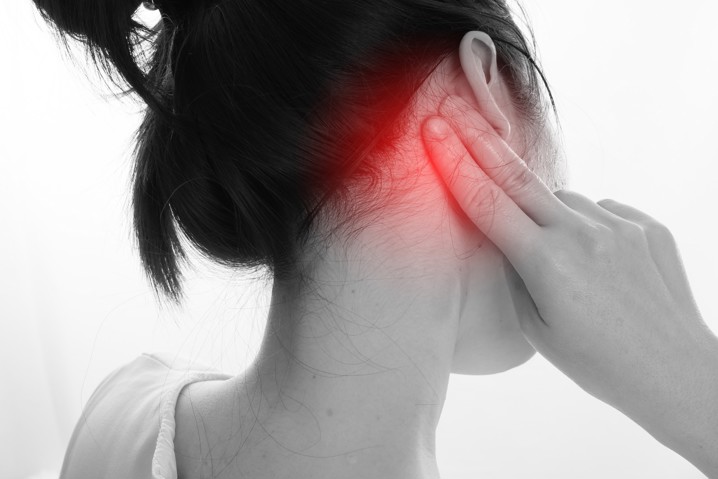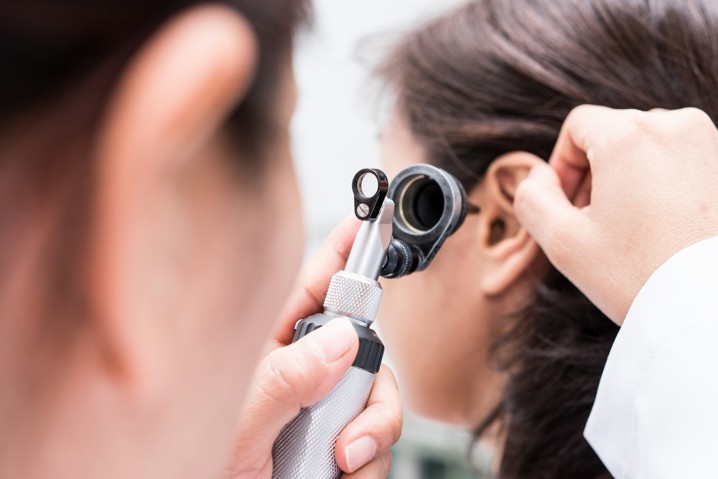

If you often ask for someone to repeat something to you, it's time for this review
It is recommended to perform a hearing examination and hearing quality test at least once a year as part of a preventive physical examination.
The sense of hearing is one of the 5 main senses that we possess and plays a major role in development and learning. The World Health Organization estimates that more than 430 million people in the world have minor or major hearing loss.
Our hearing is active 24 hours a day, and the hearing aid of the human body is more complex even than sight. Timely detection of hearing impairment and appropriate therapeutic treatment are extremely important, as delaying treatment leads to progressive deterioration of hearing.
It is recommended to perform a hearing examination and hearing quality test at least once a year as part of a preventive physical examination.
It has become quite common to have headphones on the way to work or school. We are not aware of how frequent use of headphones, especially at higher volumes, can negatively affect our hearing.
More than 1 billion young people are at risk of permanent hearing loss due to poor listening habits, i.e. repeated exposure to sound at inappropriate volumes.
Hearing impairment and loss have significant consequences on the daily communication, social and emotional life of the individual. One of the difficulties of hearing loss is the potential decrease in cognitive function.
Research shows that people aged 60 to 69 with mild to moderate hearing impairment have poorer psychomotor processing and executive functions.
In the case of major hearing impairment, people have poorer results on memory tests, a weaker mental state and executive functions such as redirecting attention.
A potential decrease in cognitive function is also a problem in children with hearing impairment.
In younger children, hearing impairment is more difficult to recognize than in adults, and it is estimated that in 70% of cases it is already present at discharge from the maternity hospital. Most often, hearing loss in children is detected only at the age of 2 to 3 years because speech does not develop properly.
The aforementioned consequences of hearing damage and loss make preventive hearing examination an important factor in maintaining health at any age, and you can do it quickly and easily at the Lohuis Filipović Polyclinic.
A hearing aid is an extremely sensitive set of organs that includes the outer part of the ear, ear, ear canal, eardrum, eardrum, middle and inner ear. For a quality hearing examination, it is crucial to examine all parts of the hearing aid.
Hearing examination includes:
It is also called otoscopy and involves an examination of the ear, ear canal and eardrum.
Ear examination begins with a conversation with a specialist doctor – an otolaryngologist. During the conversation, it is important to list all the hearing problems that bother you, for example if you feel itching in the ear, discomfort in the ear, have problems with excessive secretion of cerumen (earwax), hear noise or buzzing.
Talking to a doctor is just as important for a hearing examination as other diagnostic tests. During the conversation, one gets the impression of how a person hears, that is, how he or she understands words and understands speech.
The interview is followed by an examination that allows a more detailed examination of the structures of the ear.

The ear canal or external auditory canal is a tube that runs from the auricle to the eardrum. The ear canal conducts acoustic energy to the eardrum and has a protective role. It protects the ear from sudden changes in air temperature, secretes cerumen and prevents the penetration of foreign bodies into the inside of the ear.
Inflammation of the skin of the ear canal is very common, which occurs due to improper cleaning of the ear, swimming in dirty water or anatomical disorders (e.g. exostosis of the ear canal).
Prolonged and persistent itching in the ear is a common symptom of problems with the ear canal.
Inappropriate use of ear sticks for the purpose of relieving itching causes damage to the skin of the ear canal. Consequently, the risk of painful and extremely unpleasant inflammation of the ear canal increases, which can lead to hearing impairment.
The eardrum divides the ear canal from the middle ear, on the outside it is lined with skin that continues to the skin of the ear canal.
It amplifies the sound in the form of vibrations and transmits it further to the middle and inner ear. It also has a protective role, acts as a barrier between the ear canal and the middle ear and protects the inner parts of the ear from bacteria and impurities.
An examination of the eardrum consists of a detailed examination with an otoscope or endoscope.
Since the eardrum is very sensitive to changes in pressure, any blockage of the hearing aid canal causes pressure on the eardrum and can lead to hearing loss.
Tympanometry is a method that is invaluable for assessing the mobility of the eardrum.
A hearing test is an integral part of a hearing examination. Orientation hearing testing is carried out through a conversation with the patient and the use of everyday objects to produce sounds.
Two methods are used to test hearing: qualitative testing to determine the type of hearing impairment and quantitative testing to determine the degree of impairment.
Previously, the development of electronic testing devices used a qualitative method. By using music tuners of different sizes and frequencies, the extent of hearing impairment was subjectively assessed.
The qualitative method of hearing testing is still very useful today, especially in emergency situations or when other methods do not provide safe, reliable data.
The advancement of technology has enabled the development of modern medical devices for hearing examinations such as tone audiometry, speech audiometry and tympanometry.
Tympanometry is an examination of the suppleness of the eardrum. A small probe is placed in the ear canal, and the tympanometer measures the air pressure in the middle ear and the mobility of the ossicles. It is especially important for examining the hearing of young children. With this test, it is possible to diagnose the presence of fluid in the middle ear and negative pressures due to an enlarged third tonsil.
No special preparation is required for a hearing examination. We advise you to come to the examination in comfortable clothes and clean your ear on the day of the examination.
Before the examination, our doctor will explain what will be done and instruct you in the hearing test procedure.
We recommend that you bring all the necessary medical documentation and the results of previous findings, if you have any.
Older patients are advised to make a list of all hearing-related problems with their duration and intensity.
At the Lohuis Filipović Polyclinic, our main goal is to improve the quality of life and health of our clients by providing them with a top-notch health service.
We are proud of our multidisciplinary team, which brings together renowned experts with many years of experience in scientific and practical work, in order to offer an individual and comprehensive approach in Croatia, which is the result of knowledge, skills, years of experience and the use of state-of-the-art treatment techniques according to the highest world standard.
Our hearing specialist is Doc. dr.sc. Jakov Ajduk, dr. med. specialist in otorhinolaryngology, subspecialist in audiology, phoniatrics and otosurgery. For a consultation and examination with Dr. Ajduk, you can make an appointment by phone at +385 1 2444 646 or via the online form on our website.
If you or your family members suffer from hearing difficulties, we will be happy to receive you in the premises of our polyclinic at Trg John Fitzgeralda Kennedyja 6b, Zagreb.

If you sometimes have hearing difficulties due to external circumstances (noise, etc.), it does not necessarily mean that you have hearing loss. However, if you recognize yourself among several of the above symptoms, you should definitely have a hearing examination as soon as possible.
You may notice that these signs of hearing loss are what we actually consider normal behavior, especially for the elderly. One of the difficulties in diagnosing hearing loss in a timely manner is not recognizing the symptoms.
A significant factor is also the denial of hearing impairment due to fear of stigma. It is believed that an average of 10 years pass between the appearance of the first suspicion of hearing loss and the diagnosis.
That is why a hearing examination has a very high preventive significance.
Hearing affects many aspects of our lives and plays an important role in maintaining physical, mental and emotional health. Hearing loss often occurs gradually, so it is difficult to notice it in time. Tones slowly become quieter, sounds and speech are difficult to distinguish.
It is also widely believed that hearing loss due to aging is a normal phenomenon, which is why we often postpone treatment that can stop the progression of hearing loss.
Permanent exposure to noise, for example in industrial plants or in traffic, can also lead to hearing damage. Extremely loud noises such as a bang or the movement of an aircraft in close proximity to a person can permanently damage hearing.
Listening to music at an inappropriate volume for long periods of time can also cause hearing loss.
Certain factors of hearing loss, such as city noise and aging, cannot be influenced. However, this does not mean that hearing loss is inevitable. There are ways we can preserve or even improve our hearing.
Having a hearing exam once a year is an important part of maintaining your health.
If hearing loss is left untreated, the risk of dementia and changes in cognitive health increases. With early detection of hearing difficulties and timely initiation of treatment, it is possible to stop hearing loss.
In addition to regular hearing check-ups, we also bring you a few simple procedures that you can apply in your daily life to preserve your hearing.
Take a walk in nature and focus on the sounds you perceive in your surroundings such as the barking of a dog, the chirping of birds, the laughter of children, the rustling of leaves. This hearing exercise strengthens the ability to listen and helps improve hearing.
Turn down the volume when watching TV or listening to music. Choosing the right volume is an important factor in maintaining the health of all organs involved in listening.
Research shows that light physical activity has a positive effect on hearing preservation. Yoga is famous all over the world and contains exercises to improve hearing. Yoga exercises work by improving circulation in the brain and ears.
It will certainly not surprise you that proper nutrition affects even hearing. It is important to consume a variety of foods and consume enough vitamins and minerals. Potassium is responsible for regulating the amount of fluids and blood in the body. Eating potassium-rich foods like potatoes, spinach, melon, milk, and tomatoes helps preserve hearing.
Folic acid affects cell regeneration. Supplementing folic acid with a regular diet can slow down hearing loss because it stimulates circulation. Foods rich in folic acid are spinach, broccoli, asparagus.
Regular consumption of magnesium reduces the risk of noise-induced hearing damage. Magnesium participates in maintaining the health of blood vessels and ensures the supply of oxygen to the ear. Bananas, artichokes, asparagus, potatoes, spinach, and tomatoes are all rich sources of magnesium.
The main goal of LF Polyclinic is to improve the quality of life and health of our clients by providing them with top-notch healthcare services.